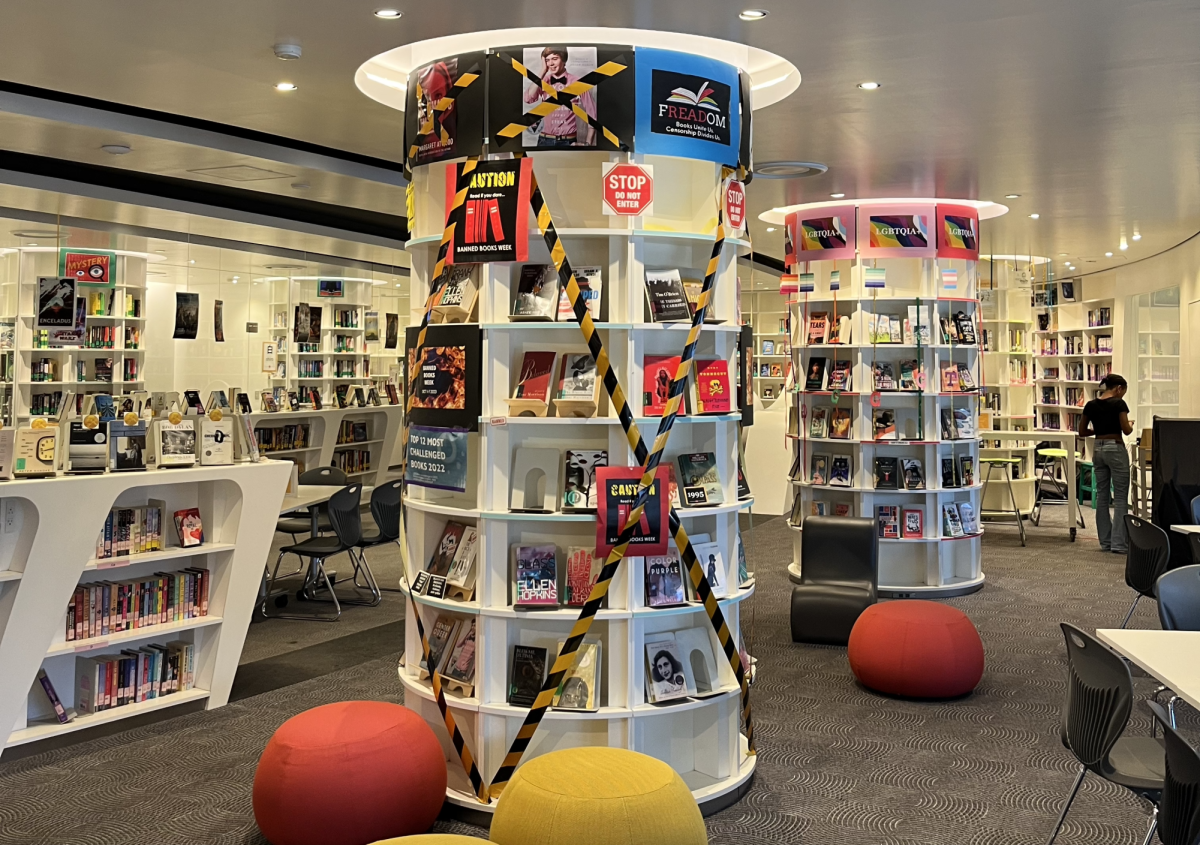There are 171,476 words currently used in the English language according to the Oxford English Dictionary’s Second Edition. This fact sometimes scares people away from the voluminous rows of books in libraries. For others, though, the endless possibilities that come from so many words are enticing.
Regardless, reading is crucial to the development of one’s knowledge, personal growth, and to humanity as a whole. Thus, librarians are tasked with a very difficult job: creating a library welcoming to each unique student.
ASIJ’s library is a perfect example of a space reflective of everyone’s needs. It emulates the words of ASIJ’s head librarian, Ms. Landry, that “the philosophy of a librarian is to prompt inclusivity.” Within thirty seconds of entering the library, one can see how the vibrant diversity of books and displays fulfills the needs of students, faculty, and parents.
As Ms. Landry reflected about the power of books, she said that words are a means to walk “into the experience of others.” Diversity is important to librarians because it means students can see themselves, see others, and deepen their empathy. For Mrs. Haddad, an assistant librarian, diversity is the most important criterion present in her work of masterminding the library’s displays and artwork.
Ms. Landry explained that the library conducts “service safaris,” a research tool involving first-person experience to develop meaningful insights on the needs of library-users. Everything we see in the library—the egg chairs, the charging ports, the swiveling desks—is a culmination of the librarians’ observations. They work to create a “haven” or “sanctuary” for students.
The librarians’ service also extends outside the library. Ms. Landry teaches lessons on information literacy in some classes to aid students in navigating the ever-expanding digital world. Mrs. Haddad, as the PTA HS Division Chair, “connects families with the school.” She also manages the grants which bring student projects, such as Enough is Enough, to life.
Sometimes the spoken word is as important as the written word. Consequently, all the librarians manage ID card scan-ins at the beginning of each block to learn names and to “let students know that we know them,” said Ms. Landry. It isn’t a good book that makes their week; for Mrs. Haddad, it was a student saying, “I just like talking to you.” For Ms. Landry, it’s a student letting her know they really enjoyed the book she recommended. Mrs. Haddad explained with a smile that her second role is “to serve as a support and sounding board to our students” and let them know she’s always “happy to talk with them.”
Just as many different words weave together to form a sentence, the librarians join forces to create a nurturing library. There is not only one group, one story, or one image represented. There is not only one function, one job, or one role the librarians play. There is not only one student, one character, or one personality served and accepted.
Despite the prominent educational role that librarians play, their efforts might sometimes be underappreciated. However, Mrs. Haddad said she is “very proud of working here even if we don’t seem like the most important people on campus.”

